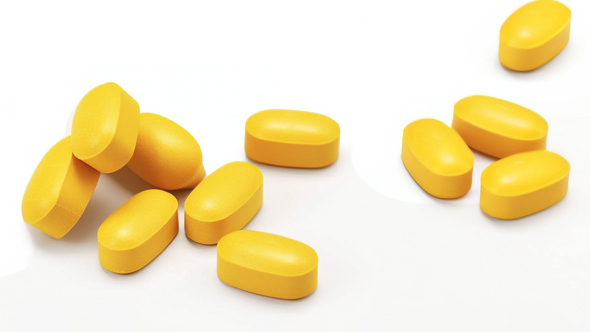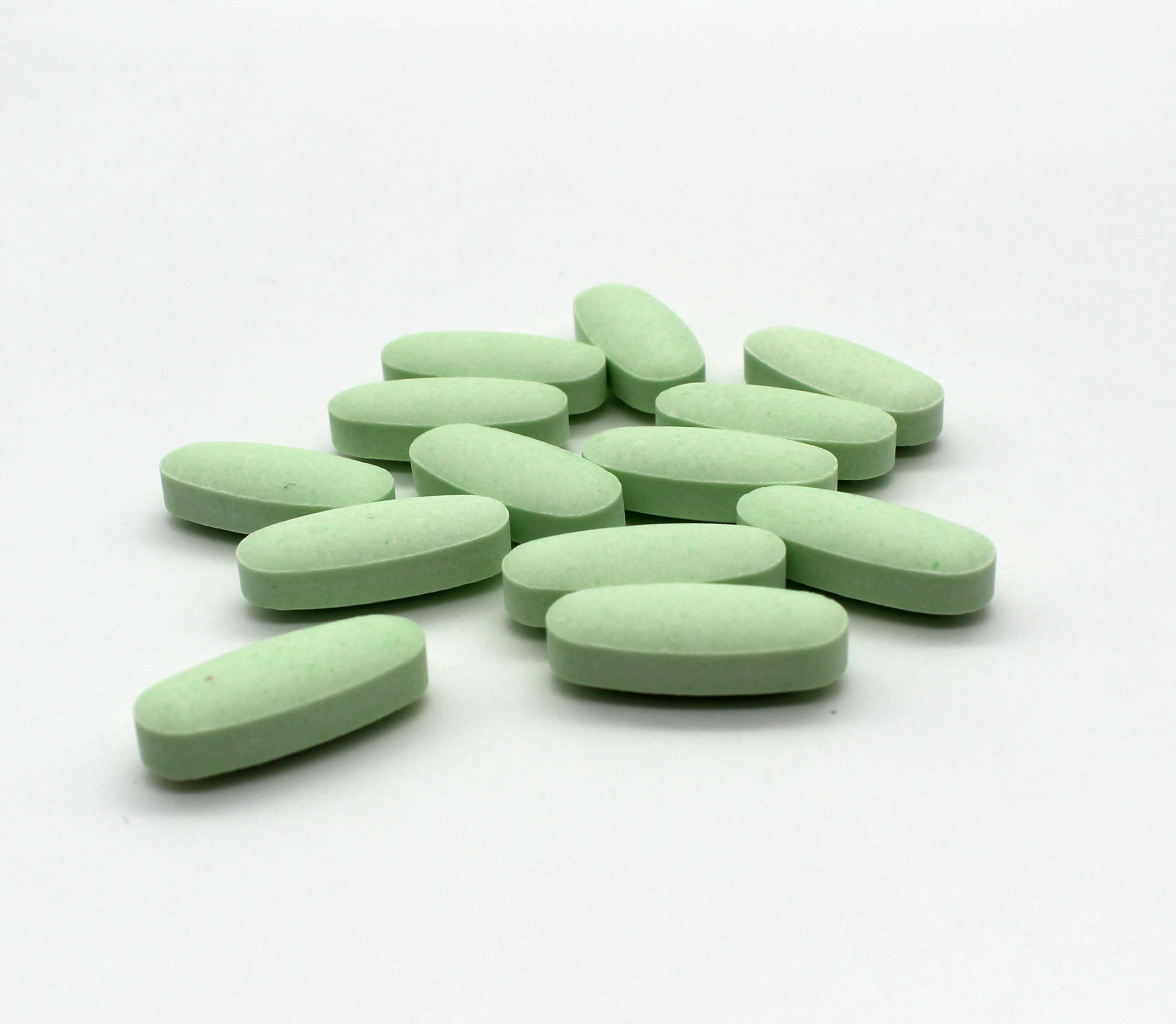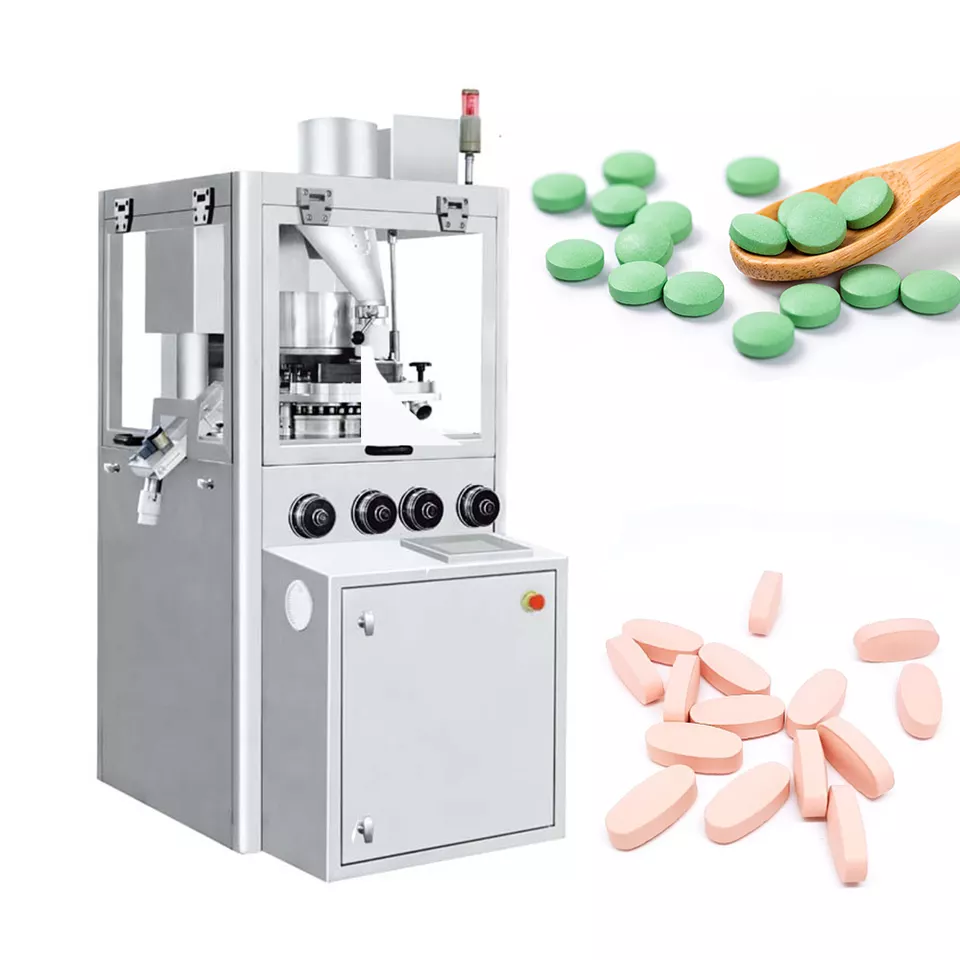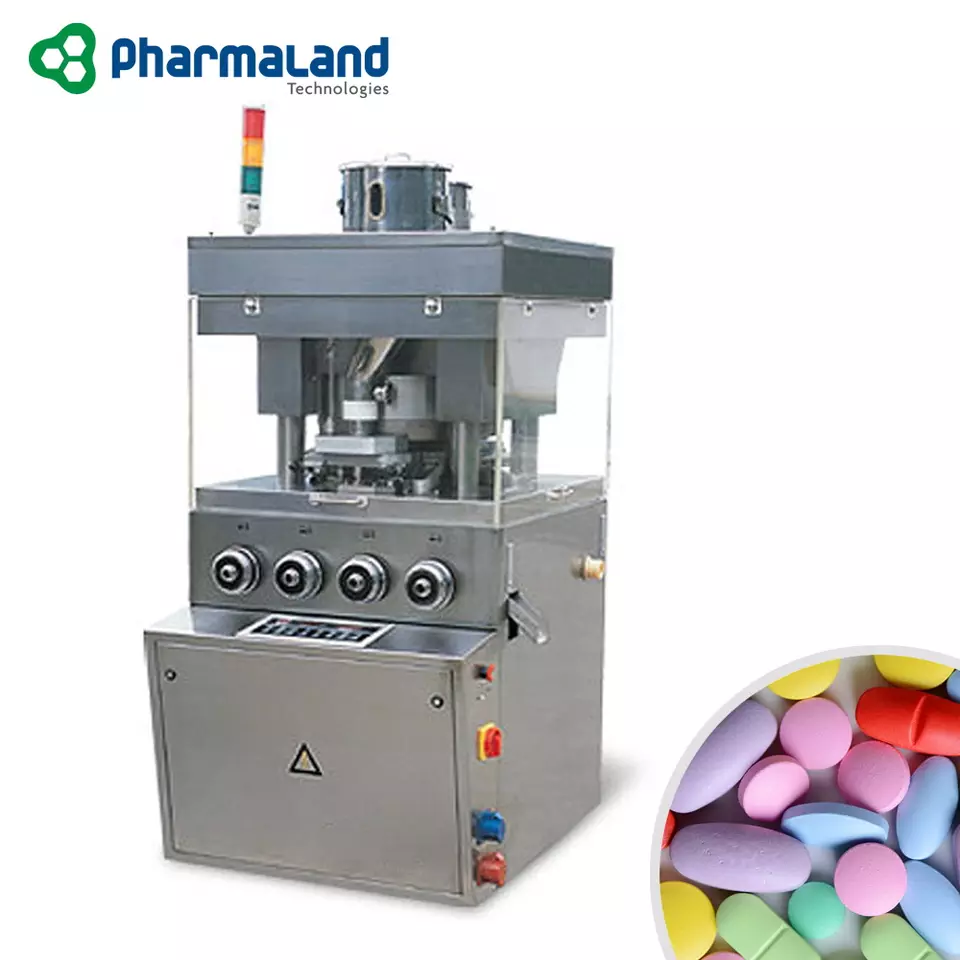
15 Nov Single Punch Tablet Press Machines Small Size, Big Advantages
I. Introduction
The world of pharmaceutical and nutraceutical manufacturing is continually advancing, and at the heart of this evolution are innovative technologies that drive efficiency and precision. Among these, single punch tablet press machines stand out as compact and highly efficient workhorses.
What are the Single Punch Tablet Press Machines ?
Single punch tablet press machines are a vital component of the manufacturing process, enabling the production of high-quality tablets with remarkable ease. These machines are engineered to optimize space and functionality, making them an attractive choice for a wide range of industries.

II. Understanding Single Punch Tablet Press Machines
Here, we’ll delve deeper into the functionality and significance of single punch tablet press machines:
Functionality:
Single punch tablet press machines operate on a simple yet ingenious principle. They exert precise pressure to compact powdered or granulated materials into uniform tablets of various sizes and shapes. This process ensures that each tablet meets stringent quality standards, from weight and thickness to hardness and disintegration properties.
Role in Pharmaceutical and Nutraceutical Production:
These machines play an indispensable role in pharmaceutical and nutraceutical manufacturing. In the pharmaceutical sector, they are instrumental in the production of prescription and over-the-counter medications, ensuring consistent dosages and pharmaceutical integrity. In the nutraceutical industry, they facilitate the creation of vitamins, minerals, and dietary supplements, delivering precision and efficiency.
By understanding the fundamental function and significance of single punch tablet press machines, manufacturers in pharmaceuticals and nutraceuticals can appreciate how these compact yet powerful devices drive quality and productivity in their operations.

III. Advantages of Single Punch Tablet Press Machines:
Small Footprint:
Single punch tablet press machines are compact and space-efficient. Their small size means they can fit into tight manufacturing spaces, making them ideal for facilities with limited room for equipment. This advantage not only saves space but also allows for more flexible floor layouts.
Cost-Effective:
These machines are often more cost-effective than larger, more complex tablet press machines. They are a practical choice for businesses looking to control production costs while maintaining high-quality tablet manufacturing. Their initial investment cost is generally lower, making them accessible to smaller manufacturers.
Ease of Operation:
Single punch tablet press machines are designed with user-friendliness in mind. They typically have straightforward controls and require minimal training for operators. This reduces the learning curve and ensures that production can begin quickly without extensive training periods.
High Precision:
Precision is crucial in tablet manufacturing, especially in pharmaceuticals. Single punch machines are known for their ability to produce tablets with consistent weight, thickness, and hardness. This precision ensures that each tablet meets quality standards, reducing product waste and the risk of dosage variations.

Versatility:
These machines are versatile and can handle a variety of tablet sizes and shapes. This adaptability is beneficial for businesses producing a range of tablet formulations without the need for multiple machines.
IV. Applications of Single Punch Tablet Press Machines:
Single punch tablet press machines find applications in a wide range of industries, including pharmaceuticals, nutraceuticals, herbal supplements, and even the food industry. Here are some examples:
Pharmaceuticals:
In pharmaceutical manufacturing, these machines are used to produce a variety of medications, including over-the-counter drugs and prescription tablets.
Nutraceuticals:
Single punch tablet press machines are essential for the production of vitamins, minerals, and dietary supplements in tablet form.
Herbal Supplements:
Manufacturers of herbal supplements use these machines to create convenient and consistent tablet formulations from herbal extracts.
Confectionery:
Some confectionery businesses use single punch machines to produce compressed candies or mints in tablet form.
Chemicals:
These machines are also utilized in chemical industries to create compressed chemical tablets for various applications.

V. Single Punch Tablet Press Machines vs. Rotary Tablet Press Machines: Understanding the Difference
Now that we’ve grasped the essence of single punch tablet press machines, it’s crucial to distinguish them from their counterpart, the rotary tablet press machine. Understanding their differences is essential for buyers seeking the ideal tablet production solution.
Single Punch Tablet Press Machines:
- Operational Principle: Single punch machines work on a single-station basis. They press one tablet at a time, providing precise control over each tablet’s characteristics, such as weight, thickness, and hardness.
- Compact Design: Single punch machines are known for their small footprint. They are space-efficient and ideal for facilities with limited floor space.
- Versatility: These machines are versatile and can handle a variety of tablet sizes and shapes, making them suitable for small to medium-scale production with frequent product changeovers.
- Production Rate: While they offer excellent precision, single punch machines have a lower production rate compared to rotary presses. They are best suited for businesses with moderate tablet production requirements.

Rotary Tablet Presses Machines:
- Operational Principle: Rotary presses are continuous-motion machines that produce tablets in large quantities. They have multiple stations or tooling stations that operate simultaneously, leading to high production rates.
- Large-Scale Production: Rotary presses are designed for high-capacity production. They can produce thousands of tablets per minute, making them ideal for large pharmaceutical manufacturers.
- Higher Initial Investment: These machines are more complex and larger than single punch machines, which often results in a higher initial investment cost.
- Consistency in Large Batches: Rotary tablet presses excel in producing consistent tablets in large batches. They are well-suited for products that require high output rates and uniform tablet properties.
- Less Versatile: Rotary presses are less flexible when it comes to changing tablet sizes and shapes, as it involves changing tooling, which can be time-consuming.

Choosing the Right Tablet Making Machine:
Selecting between a single punch tablet press machine and a rotary tablet press machine boils down to your specific production needs. Single punch machines are excellent for smaller-scale operations, frequent product changes, and precise tablet control. Rotary presses, on the other hand, are the go-to choice for high-volume, consistent tablet production.
So , For small scale production industries, the selection of the appropriate tablet press machine is a critical decision. Single punch press machines use a single set of tablet tooling, typically consisting of upper punch and lower punch. These upper and lower punches tooling components are critical for manufacturing high-quality pill press. By selecting and adjusting these tools appropriately, small scale product processing manufacturers can control the specifications of the tablets, including their size, shape, and thickness.
In conclusion, comprehending the distinction between these two types of tablet press machines is crucial for manufacturers aiming to optimize their tablet production processes. By aligning your requirements with the capabilities of these machines, you can make an informed decision that suits your manufacturing goals.
